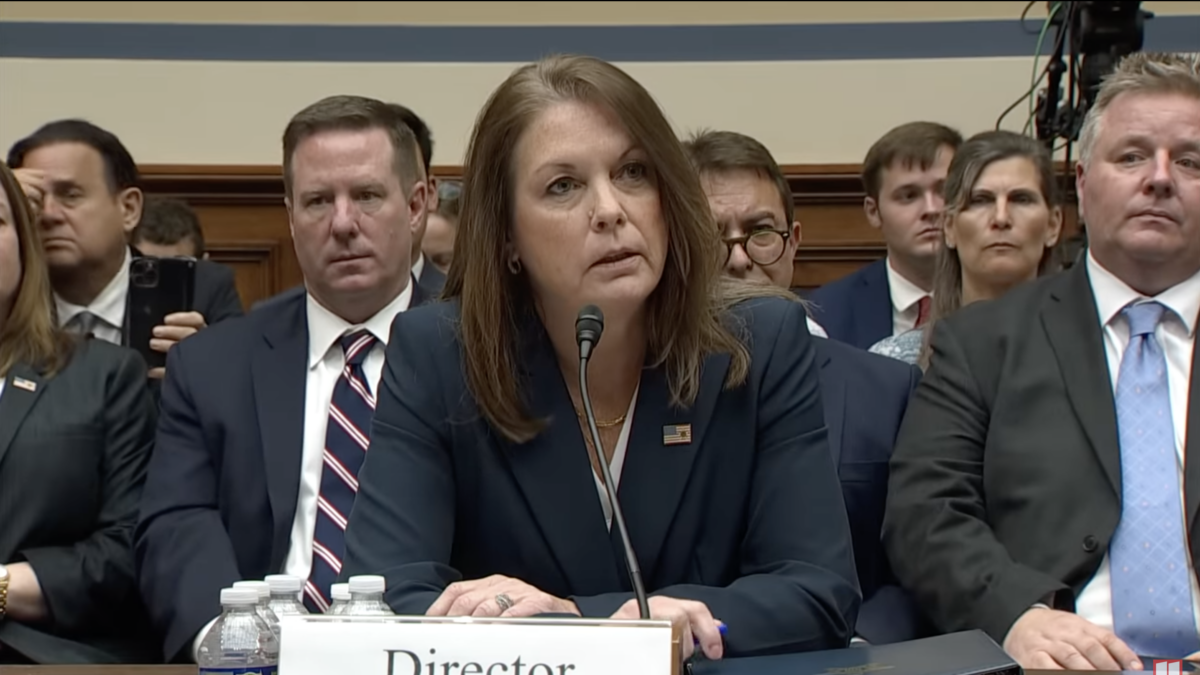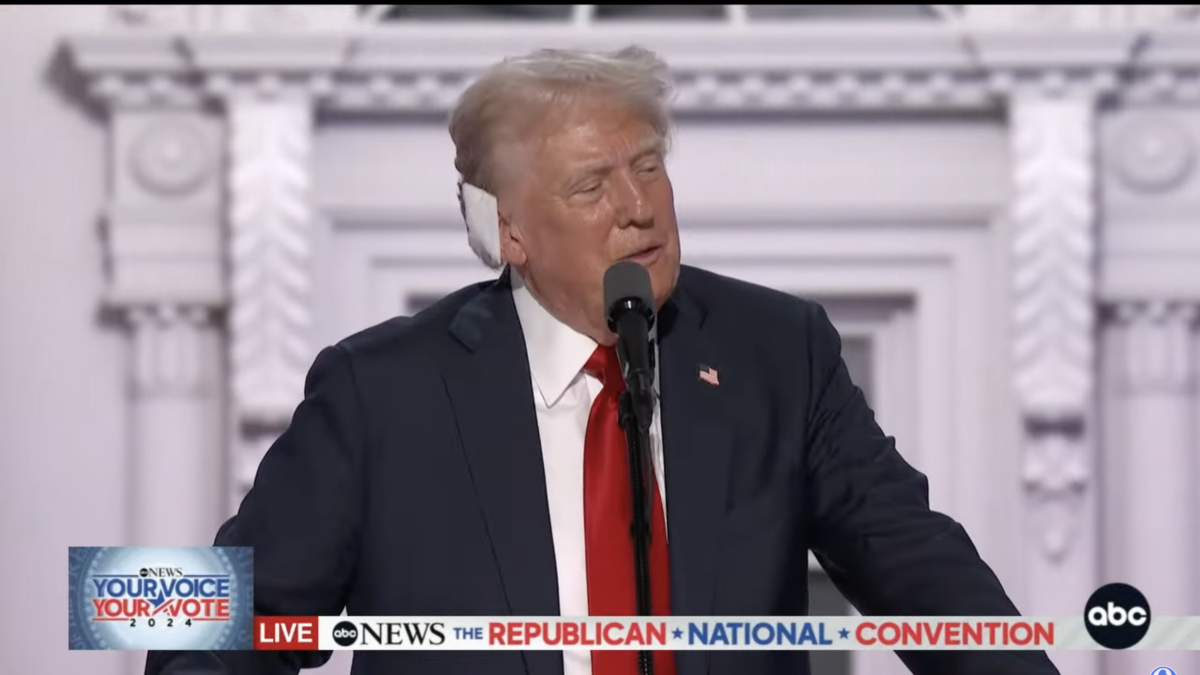
Former Arkansas Gov. Mike Huckabee is taking heat for the second week in a row of his new book tour. Those who oppose legalizing marriage for same-sex couples have repeatedly rejected the comparison of the marriage-equality movement to the civil-rights movement. Weirdly, at least some of them, including the potential presidential contender, are now urging a repeat of the confrontation between federal judges and state authorities that capped the school desegregation fight if the Supreme Court legalizes same-sex marriage this term.
While touting his book, “God, Guns, Grits and Gravy,” on Hugh Hewitt’s radio show this week, Huckabee had unusual things to say about judicial process and constitutional supremacy. Specifically, he thinks that state officials can ignore the Supreme Court if it rules that states must recognize and provide marriage for same-sex couples.
One thing I am angry about, though, Hugh, is this notion of judicial supremacy, where if the courts make a decision, I hear governors and even some aspirants to the presidency say well, that’s settled, and it’s the law of the land. No, it isn’t the law of the land. Constitutionally, the courts cannot make a law. They can interpret one. And then the legislature has to create enabling legislation, and the executive has to sign it, and has to enforce it. […]
Well, if the federal Supreme Court rules that same-sex marriage is protected under the 14th Amendment, you still have to have Congress and the President act to agree with it, because one branch of government does not overrule the other two. This idea that a judge makes a ruling on Friday afternoon, and Saturday morning same-sex marriage licenses are being given out, that’s utter nonsense, because there’s not been any agreement with the other two branches of government, so I just want people to go back to their ninth-grade civics class, and remember there are three branches equal, and that all three of them have to be in concert in order for something to become law. And the courts can’t make a law, and they don’t have the power to enforce a law. […]
Well, the point is states would be in a position that their legislatures would have to go into session. They would have to create legislation that the governor would sign. If they don’t, then there is not same-sex marriage in that state. Now if the federal courts say well, you’re going to have to do it, well, then you have a confrontation. At that point, somebody has to decide is the Court right? If it is, then the legislation will be passed.
This is, legally speaking, gobbledygook. Huckabee’s statement contains untruths nested in false suppositions founded in elementary misapprehension of the laws at issue in the marriage cases, not to mention the Constitution of the United States.
Huckabee’s False Beliefs about the Constitution
First, anyone who has been through Huckabee’s hypothetical ninth-grade civics class should know that, while there are three branches of government, only one of them gets the final say on whether laws passed by Congress or implemented by the executive branch are constitutional: the judicial branch. Thus, while the branches are co-equal, they fulfill different roles. This was settled all the way back in the Founders’ era in a little case called Marbury v. Madison. It is not the situation that, as Huckabee suggests, all three branches of federal government must first agree on what the law is for it to be the law of the land. It is even less the case that Congress and the president get to determine that the Constitution means something contrary to what the Supreme Court decides.
Second, the U.S. Constitution, Article VI, Clause 2, provides that the Constitution, federal laws, and treaties are the supreme law of the land and bind the states notwithstanding “anything in the constitution or laws of any state to the contrary.” Huckabee’s claim that a state or state officials could simply ignore a Supreme Court ruling on same-sex marriage is thus plainly false. The states do not, outside of the amendment process, get to determine that the Constitution means something other than what the Supreme Court decides.
Third, Huckabee’s assurance that a state would have to enact legislation before the Supreme Court’s ruling goes into effect is similarly incorrect. Marriages are taking place all across the country right now, including in Utah, Florida, Virginia, and my home state of Oklahoma, pursuant to judicial orders, not legislation implementing judicial orders. In places where courts legalized marriage rather than legislatures, like California and Iowa, it took some time for the legislatures to catch up and rewrite statutes to address “spouses” rather than “husband and wife.” Legislatures didn’t have to ratify judicial decisions before they became law. They were merely catching up to conform statute to the law then in effect. During that gap, same-sex marriages proceeded just as the courts had ordered without any need to wait for the legislature and governors to catch up first.
A Troubling Similarity to Civil-Rights History
Fourth, Huckabee’s musing that “somebody has to decide” if the Supreme Court is right on marriage calls to mind another Arkansas governor who infamously thought his own beliefs trumped the Supreme Court. In 1957, Gov. Orval Faubus tried to prevent racial desegregation in schools, which had been ordered by the Supreme Court in Brown v. Board of Education, by ordering the Arkansas National Guard to prevent the black students known as the Little Rock Nine from entering their previously whites-only high school.
As any ninth-grade civics class could tell you, Faubus’ obstinacy provoked a violent constitutional confrontation that took the intervention of President Eisenhower to resolve. Eisenhower ended up nationalizing that same Arkansas National Guard to ensure that desegregation went ahead as ordered by the Supreme Court. To their great credit, the guardsmen recognized their lawful orders. The Supreme Court’s determination trumped a state official’s personal beliefs, as contemplated by the supremacy clause. The cost, however, was raising arms against fellow Americans.
Huckabee, hopefully, wasn’t suggesting that a confrontation on marriage should go so far, although he didn’t explain what he thought would happen if state officials tried to ignore a Supreme Court decision legalizing marriage between same-sex couples. We can, however, find some guidance on that question from the other federal judges to face the issue. Just last month, faced with rebelling state court clerks, a federal district judge in Florida was forced to issue an order “clarifying” that he actually meant all state clerks when he ruled Florida’s gay marriage ban unconstitutional. He wrote (PDF):
History records no shortage of instances when state officials defied federal court orders on issues of federal constitutional law. Happily, there are many more instances when responsible officials followed the law, like it or not. Reasonable people can debate whether the ruling in this case was correct and who it binds. There should be no debate, however, on the question whether a clerk of court may follow the ruling, even for marriage-license applicants who are not parties to this case. And a clerk who chooses not to follow the ruling should take note: the governing statutes and rules of procedure allow individuals to intervene as plaintiffs in pending actions, allow certification of plaintiff and defendant classes, allow issuance of successive preliminary injunctions, and allow successful plaintiffs to recover costs and attorney’s fees.
Monetary penalties imposed by the federal courts would be a compelling, though unfortunate, reminder that the federal courts are not lightly ignored.









